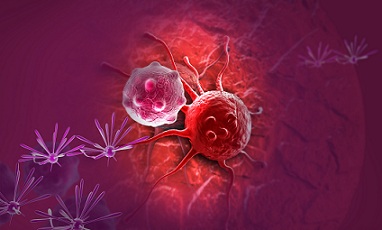Laying down markers for future cancer treatments

Related topics
Health Innovation Funding Researchers Marie Skłodowska Curie actions Health, Demographic Change and Wellbeing Ireland United Kingdomdate: 23/01/2014
Project: Identification of Clinically Useful Biom...
acronym: BIOMARKERIGF
See also: Info-centre
Contact: http://www.ucc.ie/en/
While this unwanted secondary function is an obvious risk to health, it also provides cancer researchers with an opportunity. Researchers in the field believe that understanding the characteristics of IGF-IR activity could help them develop important therapeutic treatments which use these attributes to target cancerous cells in the breast, lung and colon.
The potential for using these versatile proteins as targets in cancer cells has attracted major interest from pharmaceutical companies and clinicians alike. At least 70 clinical trials are under way worldwide to test several different drugs that inhibit the IGF-1R and the IGF-I signalling pathway at different points.
One of the major challenges to targeting the IGF-1 pathway in cancer is the lack of suitable biomarkers, the measurable substances that reflect the severity or presence of a disease. These could be used to assess IGF-IR activity in tumours, facilitate the selection of patients and subsets of tumours that are most likely to respond to inhibitors, and monitor responses to IGF-1R inhibition.
Marking out the route
The BioMarker IGF project, supported by Marie Curie Actions – an EU research fund managed by the Research Executive Agency (REA), aims to address this problem by identifying and validating biomarkers for the IGF-I signalling pathway in cancer – in other words, what prompts the cancer to grow.
“The IGF-1 signalling pathway is active in a majority of cancers and contributes not only to the growth of tumours and the ability of cancer to spread, but also to a lack of responses to many existing therapies, including chemotherapy and radiation,” says Professor Rosemary O’Connor, the project coordinator.
“To successfully combine the right drugs to attack a particular cancer or subset of cancers, biomarkers of activity, which means being able to assess the status of the IGF-1 pathway in patients’ cells, are required,” she adds. These biomarkers will ultimately determine which kinds of cancer may benefit from which drug combinations.
The research is being carried out by experts in IGF-1 signalling at University College Cork in collaboration with experts in pharmacogenomic (the influence of genetic variation on drug response) approaches to biomarker discovery in cancer at Almac Diagnostics, a Northern Irish Biomarker Discovery, Development and Delivery company.
The collaborative aspect, which includes extensive transfer of knowledge and experience, as well as exchanges of researchers, is integral to the project’s success. The co-operation is also expected to lead to the development of commercial applications.
“Our industry partner Almac is currently engaged in developing diagnostic tools for the treatment of cancer,” Prof. O’Connor says. “Other companies and clinical investigators are also testing inhibitors of the IGF-1 pathway.”
Prof. O’Connor says that the ultimate objective of the project is to select a clinically validated signature or biomarker for IGF-1 pathway activity in one or more cancers. “This would ideally be used to select patients or subsets of cancers suitable for inhibitors of this pathway in combination with other therapies,” she concludes. “The biomarkers could also be used to monitor therapy responses.”
The project team is currently in the process of analysing data from genomic screens to identify good matches. These will then be validated using patient databases, and tested in clinical trials.
